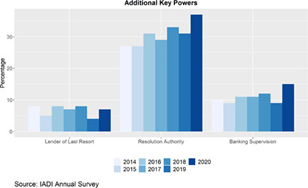Chances and challenges for using social networks for policy communication
Many researches show that social networks are playing a big role in the total access to online newspapers. Therefore, many organizations and agencies have paid more attention to using social networks instead of only their official websites for reaching out to their public audience. The Vietnamese public’s tendency to gather information on social networks is also the reason for businesses, individuals and artists… to choose social networks as the main communication channel.
In a positive way, social networks serve as a channel for spreading and disseminating policies, making a great contribution to the communication of the Party's approaches and State's policies and regulations, thereby enhancing the public confidence in the direction of the Party.
While traditional media are limited in the capability of spreading information, social networks almost overcome it. A policy that is posted on social networks can be immediately accessed by millions of audience all over the world; then the audience may disseminate this information just via sharing the post. In such a way, policy communication is continued without limits.
In fact, during recent years in Vietnam, the use of social networks as an important channel of policy communication has been more and more popular in socio-political organizations and press agencies. Many state agencies from central to local have their own fanpages. Opportunities for social networks to participate in policy communication in Vietnam thus are much bigger than the current activities.
Social networks also serve as a platform for public exchange, discussion and sharing of information. As discussed with orientation in a wide scope, state policies would be easily agreed by the community.
Besides, social networks communication is also a good channel for public communication, helping collect feedbacks and direct the public opinions.
In the past, when social networks had not yet bloomed, policy communicators found it difficult to grasp public opinions. Nowadays, thanks to social networks, anyone can be a source of information, so it is easy for people to share and exchange their personal views and opinions with many people. Online interactions help create closeness between the public and public communicators, providing quite complete data about the needs, qualifications, and preferences of each public group, so that the policy communicators can have proper strategies for communication. At the same time, online interactions also help policy communicators quickly and accurately grasp public opinion so that timely directions, especially with important policies, could be delivered.
By openly and freely expressing opinions within the legal framework, social network participants can also easily exercise their right of criticism. In particular, when a draft law is released for public opinion, social networks help quickly and widely collect opinions. Social networks also have a very beneficial feature for policy communicators, which is survey questions to poll public opinions. This type of poll is very easy to implement and highly effective. The survey participants only need one mouse click to express their opinion on the issue being raised. Through the results of questionnaire responses, communicators can draw conclusions about the issues they are wondering about, and at the same time grasp the public's thinking trends on the existing events in the society. These survey results can also serve as a source of reference for policy adjustments.
In addition, in the context of the emergence of a large amount of false and harmful information, policy communicators can use social networks as an effective channel to refute wrong views and promptly share official news, prevent fake news, distorted news and gain the support of the public.
The advantages of social networks in policy communication are clear. However, social networks are also having negative impacts on policy communication.
Accordingly, social networks are being used by hostile forces as a main tool to propagate against the state, distort official information, and incite the masses, taking advantages of hot events and issues.< /p>
The problems of a large number of participants and many virtual and anonymous accounts have been causing many difficulties for moderating. The fact that anyone can become an information provider on social networks makes fake news and misleading news appear commonly in increasingly sophisticated forms, causing distortions of official sources. Furthermore, the public is easily manipulated by the "crowd" mentality. A few influential people with misleading ideas can also lead public opinion, creating the effect of "boycotting", "stoning" or opposing policies even without proper understanding.
In another aspect, social networks pose a problem for information security, especially with national secrets. Social network accounts can be hacked or infiltrated, with information and data stolen. In addition, policy communicators may not be fully aware of the importance of information security and the danger of revealing personal or organizational information, so they often post internal activities or information on social networks, unintentionally supporting saboteurs and distorters.
Therefore, using social networks also requires caution and strict management to ensure that the shared information is trusted and does not cause confusion or instability in the community.
Some recommendations for deposit insurance policy communication via social networks
Using social networks for policy communication with undeniable advantages is now a popular trend in the world. However, the downside is that social networks are "virtual" but the consequences are "real" forcing agencies and organizations, especially the Deposit Insurance of Vietnam (DIV) - a specialized non-profit financial institution, to consider using social networks with solutions for proper exploitation in which users should be equipped with skills to use social networks for best efficiency in policy communication.
First, on choosing social networks for policy communication, DIV needs to choose appropriate channels. In fact, on the internet today there are many social networks with different advantages and methods of operation. Some social networks are more popular but are not highly appreciated for their speed and capability of transmitting information. Meanwhile, other social networks, although ensuring ease of use, are not highly regarded for information security. Therefore, with the goal of ensuring smooth and effective policy communication activities, DIV needs to choose social networks that are popular, easy to use, highly secure and suitable for DIV’s conditions, situations, needs and purposes.
Second, it is necessary to strengthen information security. Technically, scientific and technological achievements should be applied to improve network security, information portal security, and websites; there should be solutions to ensure information safety, create "firewalls" to effectively prevent and fight hacker attacks which are aimed at stealing internal information and state secrets. In addition, it is also necessary to train and develop a code of conduct for officials and employees.
Third, when using social networks for communication, DIV also needs to build a team of professional personnel in charge of producing content specialized for social networks. The skill of using social networks as a policy communication channel and tool for interacting with the public is relatively new. The operating method of social networks is very different from traditional methods of communication. Therefore, to ensure effective use of social networks, it is necessary to develop and train a team of professional personnel who are skilled in using social networks as an official communication channel. The human resource team will support the selection, construction and maintenance of social network platforms suitable for the DIV and its audience.
Fourth, it is necessary to consider each individual as a policy communicator on social networks. Therefore, before using social networks to communicate policies, DIV needs to develop a code of conduct on social networks appropriate to the nature of its information. At the same time, DIV should guide its officials to strictly follow the rules, make appropriate statements, and promote their active participation in policy communication task.
Fifth, it is necessary to "personalize" information and boost interaction with the public. The goal of “personalization” is to interact with the public as individuals. Thereby, the same message may be communicates with different content and images shown to the public...
Policy information needs to be widely spread to create common awareness for the entire population. It is certain that the same way of conveying information cannot satisfy all audiences of different ages, professions, and tastes. Therefore, applying artificial intelligence to "personalize" information, sending each person a version of information that suits their needs and tastes... will help improve opportunities for everyone to access and convey information more effectively.
Department of Research and International Cooperation (translation)



























